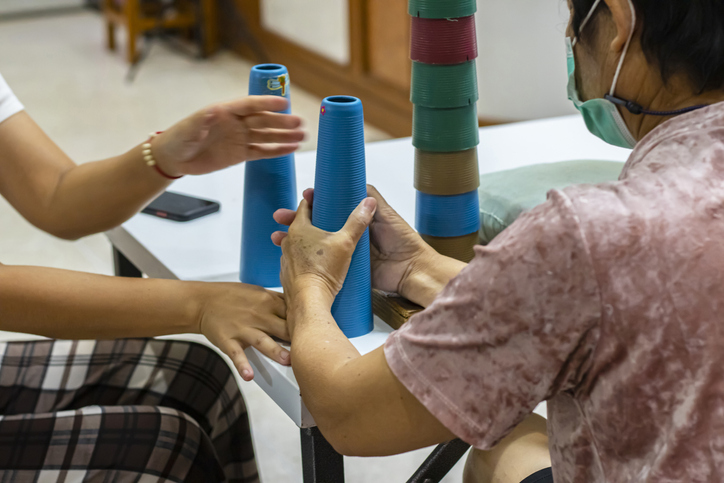Treatments
What Is Occupational Therapy?

Occupational therapy (OT) is a type of rehabilitative care. It is often recommended for individuals who have difficulty performing certain daily tasks due to an injury, illness, recent surgery, or disability. OT also involves adapting an individual’s environment (home, work, etc.) to meet their specific needs.
Who can benefit from OT?
Occupational therapy can promote independence, reduce symptoms such as pain and fatigue, and improve overall quality of life.
Individuals who may benefit from OT include those who:
- are recovering from surgery or a stroke.
- have dementia or Alzheimer’s disease.
- have a painful medical condition, such as osteoarthritis or ankylosing spondylitis.
- have a developmental condition, such as autism spectrum disorder or an intellectual disability.
What does OT involve?
During OT, an occupational therapist works with an individual to improve their fine and gross motor skills so they can complete daily activities with as little pain or fatigue as possible. An occupational therapist may also work with an individual on hand-eye coordination.
Occupational therapists can also provide instruction on the use of mobility devices (e.g., canes, walkers or wheelchairs) or assistive devices (e.g., zipper pulls, grabbers, etc.). An occupational therapist may also recommend and implement changes to an individual’s environment (home, work, or school) to help maximize the individual’s ability, comfort and independence. Examples of changes to an individual’s environment that an occupational therapist may recommend include installing a grab bar in the shower, moving furniture to more convenient and safe locations in the home, or making a workspace ergonomically correct.
What type of daily tasks are addressed in OT?
Occupational therapists work with individuals to identify specific needs and set specific goals. Examples of tasks that may be addressed in OT include the following:
- Dressing and self-care in the bathroom
- Eating and using utensils
- Safely getting into and out of chairs, beds, or the bathtub
- Cleaning or doing laundry
- Cooking and kitchen chores
Where is OT provided?
Occupational therapy can be provided in hospitals, outpatient clinics, schools, or in an individual’s home. Occupational therapists can also educate caregivers on how to best support an individual in completing tasks and daily activities



















